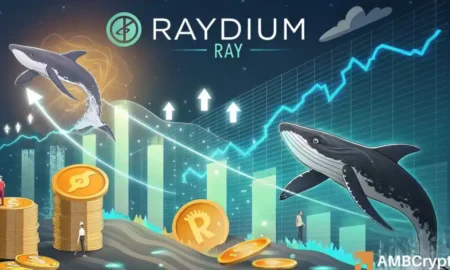El Salvador’s Bold Step into the Future: New Investment Banking Law Opens Doors to Bitcoin
El Salvador is making headlines again with its recent approval of the Investment Banking Law, which positions the nation as a budding crypto finance hub. By allowing regulated investment banks to hold Bitcoin and offer cryptocurrency services specifically to accredited investors, the country is laying the groundwork to attract foreign capital and enhance its economic landscape. This regulation marks a significant movement away from traditional banking systems and toward a more decentralized financial framework aimed at sophisticated investors.
A New Era for Investment Banking
Under this groundbreaking Investment Banking Law, investment banks in El Salvador will have the ability to serve only "sophisticated investors." These investors are defined as individuals or entities possessing at least $250,000 in liquid assets alongside considerable market experience. This regulatory framework distinctly separates investment banks from conventional commercial banks, enabling them to operate in both legal tender and foreign currencies. By allowing banks to facilitate complex financing in diverse sectors such as infrastructure, energy, and technology, El Salvador is positioning itself for a dynamic financial future.
Digital Asset Service Providers (DASP)
A crucial component of this new law is the introduction of the Digital Asset Service Provider (DASP) license. According to Juan Carlos Reyes, the President of El Salvador’s Commission of Digital Assets (CNAD), banks granted this license will have the option to function entirely as Bitcoin banks. This new framework opens up a world of possibilities, enabling institutions not just to handle traditional assets but to cater extensively to the growing demand for cryptocurrency services, thus solidifying their role in the evolving financial ecosystem.
Proposals for Bitcoin Banks
Fresh off the heels of this legislative approval, the Salvadorian government has proposed establishing dedicated Bitcoin banks. Under the supervision of the National Bitcoin Office, these private investment banks would be operational in both Bitcoin and U.S. dollars. They would not only offer standard services like deposits and loans but also aim to incorporate advanced financial products into their offerings. By setting a minimum capital requirement of $50 million and allowing for foreign ownership, the government is keen to attract global investors and reinforce its Bitcoin-centric economic policy.
Watching Global Trends
El Salvador’s strategic shift in policy is occurring at a time when institutional interest in Bitcoin is rapidly increasing worldwide. A significant number of leading U.S. banks—thirteen out of the top 25—are either currently offering or exploring Bitcoin custody and trading services. Moreover, the collective holdings of Bitcoin by the world’s Top 100 public companies are nearing one million BTC. This surge in global interest indicates that El Salvador’s move to permit investment banking operations involving Bitcoin could tap into soaring institutional market liquidity, making it an attractive proposition for investors both locally and internationally.
A Bright Future Ahead
In conclusion, El Salvador’s new Investment Banking Law signifies a bold and innovative approach to the integration of Bitcoin into the financial sector. By implementing this forward-thinking strategy, the country is not only cultivating a conducive environment for crypto investments but is also establishing itself as a significant player on the global financial stage. As local and foreign investors continue to seek opportunities in the crypto market, El Salvador’s investment banks could become vital facilitators in connecting digital currencies with broader financial systems. Ultimately, this initiative promises to redefine the economic landscape of El Salvador and pave the way for future advancements in crypto finance.












![Ethena [ENA] Rises 19% – But This Could Be a Bull Trap IF…](https://icoinmarket.com/wp-content/uploads/2025/08/Abdul-3-1-1000x600.webp-450x270.webp)



